From Uran Butka
Memorie.al / Baba Kamber Prishta were born in 1873, in the village of Pagri in Përmet. Baba Kamber’s ancestors came from the neighboring village of Hotovë and settled in Pagri, there from the beginning of the 19th century. They have been good patriots and believers. An uncle of his grandfather, named Meço, was a chuedar of Ali Pasha Tepelena and his loyalist, in the war against Turkey, until the Pasha’s head was cut off. Meçoja escaped for several years to escape persecution, but was killed in an ambush. Baba Kamberi’s grandfather and grandmother were Bektash believers and became monks in Teqe e Frashëri, since its foundation, by the saint Nasib Tahir Babaj. Three of their sons, including Kamber’s father, became dervishes in Frashëri teqe.
But since the family needed agricultural work, his father, Mehmet, was appointed an honorary Dervish and allowed to marry. The uncles also served as Dervishes in Teqe e Frashëri. The most famous of them, Dervish Kaso, was lucky enough to serve in the time of Baba Alushi, who turned Teqe e Frashëri into a hearth of the Albanian League of Prizren, where meetings and important activities were organized. Baba Alushi was waiting for and escorted the leader of the League, Abdyl Frashëri and its important activists, to the South of Albania. Dervish Kamberi was nourished and protected by these teachings of the National Renaissance and the native Bektashism.
After the death of his spiritual father, Dervish Kasos, Dervish Kamberi tried to renew the traditions of Teqe e Frashër and Bektashism. In 1910, he accompanied to Haxhi Bektash in Turkey, Baba Ahmet Turan and Baba Sulejmani of Teqe of Gjirokastra, who were given as grandparents by the World Grandfather Fejzi Dedej, who was Albanian. Dervish Kamberi gained a lot of experience in the meetings with the Grandfather, Fathers and Albanian dignitaries of Turkey, as well as from the visit to Syria and Lebanon.
In 1911, Dervish Kamberi returned to his homeland, where uprisings for freedom had erupted throughout the Albanian space. Teqeja of Frashëri, once again became the center of the movement for freedom and independence. In Teqe e Frashëri, in June 1912, a gathering of the squads of south-eastern Albania was organized and the insurgent committee was set up, headed by Tajar Tetova and Sali Butka. Dervish Kamberi welcomed with joy the declaration of Independence on November 28, 1912. Together with other Bektash clerics, he started work for the revival of Bektashism in Albania, but this movement failed to be crowned, because Albania was occupied by the Greek and Serbian armies, then the First World War started.
Southern Albania, especially Kolonja, Përmeti, Gjirokastra, Skrapari, etc., were burned and massacred by the Greek army and the Andarts, and the population of these territories moved to Vlora. Even the big family of Kamber Meço. In Vlora, he was committed to helping immigrants in need, of whatever religion and province. Father Ahmeti i Turani organized all the work to help the thousands of displaced people in the olive groves of Vlora, and even set up a large cauldron, which cooked for the families in poverty. But the lack of hygienic conditions caused cholera to break out, which led to the graves of hundreds of people, especially children. From the large family of Meçov, 13 lives were lost, among them the father, sister and grandchildren of Dervish Kamberi, who himself was affected by this disease and could barely escape, thanks to the care of his brother, Hasan and of Baba Ahmet.
At the end of the First World War, Dervish Kamberi went to the USA to collect aid from his compatriots for the reconstruction of the villages destroyed by the war. There he was well received by his compatriots, especially by the “Vatra” Federation and its leaders, Konica and Noli. In 1920, he also met in America with his fellow patriot, Mid’hat Frashër, who was visiting there to secure political support for Albania and help for the new Albanian state. While Mid’hati left for Paris, as head of the delegation to the Peace Conference, Dervish Kamberi returned to Albania in 1921.
The leaders of Bektashism in Albania made many efforts to organize the institutions of the Bektash religion and their independence, now that the Albanian state was protecting and guaranteeing religious beliefs, according to the status of the Congress of Lushnja. Baba Kamberi also helped in this important religious and national movement. He took an active part in the organization of the First Congress of Bektashism, which was held on 17.01.1921 in Teqe e Prishta in Skrapar. In this congress, Dervish Kamberi was named Father and Grandfather of Teqe e Prishte by Father Ahmet Turani, who was leading the congress. The Patriarchal Council, as the highest body of the Bektashian Clergy, drafted the Bektashian Statute, which was also approved by the Albanian Parliament.
In Teqe of Prishta, Baba Kamberi stood out as a symbol, but also a missionary of Bektashism. Teqeja of Prišta became an important center, not only of Bektashism, but also of patriotism and humanity. Father Kamberi helped all those in need who visited the teke, but also the poor and the suffering, regardless of their religious or provincial affiliation. That’s why he was nicknamed “Prishta”. Also, he was noted for the administration of Teqe e Suka, one of the most popular in the country, with a property of 222 ha of land, many cattle and feathers.
Baba Kamberi was guided by the teachings of Naim Frashëri, also that prominent Bektashi, who said: “The Bektashi are brothers not only among themselves, but also with all humanity. They love other Muslims and Christians wholeheartedly and get along well with all people. But above all, they love their country and countrymen, and this is the greatest of all virtues.”
Baba Kamber Prishta helped organize and lead other congresses of Bektashism in Albania, such as the one in Gjirokastra, on July 8, 1924, and the third congress, in Teqe e Turan of Korça, on September 26, 1929. This congress, on the most important in the history of Bektashism, was dominated by the national spirit and that of the institutionalization of Albanian Bektashism. The congress took place under the chairmanship of Baba Kamber Prishte, who played an important role, both in the basic decisions for Bektashism, and in the drafting and approval of the status of Bektashism, which was clearly defined as a sect of the Muslim religion. In the statute, among other things, it was emphasized that Bektashian clerics must be citizens of Albania, with Albanian language and blood.
In article 3, it is stated that; the official and religious language of the sect is Albanian. In art. 58, the centers were sanctioned, entitled to the respective grandparents and great-grandparents. Also, in the statute, it was expressly stated: “Until the Grandfather is elected, in accordance with the provisions of art. 27, elects deputy chief grandfather, his grace, Grandfather, Kamber Ali Prištën”. But one of the main achievements of this congress and one of the great merits of the vice-grandfather, Kamber Prishtës, was the decision to create the Bektashian Grandfather, based in Albania, as well as the election and calling by the Grandfather Council of Sali Njazi Dedej, as World Grandfather. As is known, in 1923, the “Bektashian Order” was banned in Turkey and the Bektashian sects were closed.
So, World Grandfather Sali Njazi Dedej, at the invitation of the grandfathers and fathers of Albania, left the World Center of Bektashism in Turkey and returned to his homeland. He came, as it is said, with the clothes of his body, but with the idea of placing the World Center in Albania. Its center was located in Teqe e Turani and at the end of 1930; it was moved to Teqe e Melçani, Korça. The Council of Ministers of the Kingdom of Zogu, approved the statute (regulation) issued by the III Congress, giving it the legal power of the Albanian state. In March 1930, King Zog I decreed the appointment of His Grace, Sali Njazi Dede, Grandfather of the Albanian Bektashian Sect and invited him to establish the Holy See in Tirana. Dede Saliu bought this place that God has blessed and built the Principality, becoming its founder.
During the time of the Kingdom, Bektashism marked great progress, not only in Albania, but also in the Albanian territories separated from the Albanian trunk, especially in Kosovo (Gjakove, Tetovo, Kirçovo), but also further afield, such as in Turkey, Egypt, Iraq , Greece etc. But the center of World Bektashism was in Albania, from where the entire world Bektash activity was directed, with Sali Njazi Deden at the head. An important role was played by Baba Kamberi, who was decorated by King Zog with the “Order of Skenderbeu”. Bektashism received a blow during the fascist occupation. The most serious act was the killing of the great-grandfather Sali Njazi Dedej, by the Italians, on the holy day of November 28, 1941.
The reason was that; the great grandfather did not become a tool of the invaders, did not accept Italian subsidies and kept the flame of patriotism and Bektashism burning. The fact that the Great Grandmother became the center of the demonstrations of November 28, 1939, where the anti-fascist demonstrators, together with the Great Grandfather, swore on the grave of Naim Frashër, the other fact that; Dede Saliu declared a day of mourning on the day of the Italians’ murder of Baba Abazi of Teqe e Rabija, with seven Dervishes (year 1940) with the words: “Today is a day of mourning. We need 24 hours of prayer and forgiveness for these heroes of our road”! The other fact that; The great-grandfather refused to sign a message of the religious communities, addressed to Mussolini in October 1941, which had been signed by the heads of other communities, but which had clearly responded to Jakomon, a month before he was killed.
“I have a Grandfather Council”, that is, these facts and others, were enough for the fascists to physically eliminate the patriotic Great Grandfather, Sali Dedej, as proven by archival documents. But Bektashism and all religions in Albania received the biggest blow during the communist era. Even during the civil war that the Albanian Communist Party provoked and the Yugoslavs blessed. The communists divided and hit the Bektashian clergy. Some of its leaders joined communism, took part in the war and took high positions and military ranks (colonels) contrary to the status of the Bektashi sect. Their attempt was to adapt Bektashism to communism and put the Bektashian Clergy at the service of the communist regime.
Those who did not submit to this policy were killed, such as Baba Zylfoja, who was slaughtered in Teqë e Turan, in 1943, Baba Murat Frashëri, in 1943, Baba Qamil Gllava, was shot in 1945, Baba Ali Tomorri, Baba Bedri Cakrani, Baba Shefqet Kostani, were shot in 1948 and dozens of others, who died in prisons and exiles. Religion was banned, mosques and synagogues were closed, their properties were seized, and clergy and believers were persecuted. What happened to father Kamber Prištë? He remained loyal to the Bektashi religion and to his homeland, at the same time an opponent of the cholera of communism. He refused to flee Albania, like many others, to escape the communist guillotine.
When Baba Rexhepi came to Kryegishate, in October 1944, and asked Dede Kamberi to join him, for the political exile, “because the communists do not love God and God’s people”, Kryegishate refused. Both were right. Baba Rexhepi had fought against the communists and they wanted his head. While Baba Kamberi was the World Grandfather and could not abandon the Grandmother and the believers. Even when Baba Mustafa, his close friend, begged him: “Let’s run away with the others because we will suffer”, Dede Kamberi answered: “Until here we were together, now we are separated and heybet take it with you, because I don’t want to something, that my friends have come after me and you and we cannot leave our country and run away to Europe, like the politicians. We have been myrshid and rehber and I cannot even become abandoned by my homeland. God forbid”!
And they did not abandon him. Both Fathers stood. But they saw with their own eyes what a tragedy happened to Bektashism, to the people and to their homeland. Baba Kamberi was arrested on April 28, 1945, as well as Baba Mustafa Canaj, as soon as the communists took power. Five months in the interrogator, torture and humiliation by the State Security. On September 3, 1945, the Military Court of Gjirokastra sentenced him, at the age of 72, to 15 years of deprivation of liberty and deprivation of civil and political rights, as well as confiscation of property, on the charge: “Declared guilty of the crime of being a participant instrumental in the organization and strengthening of the traitorous organization of the ‘Balli Kombëtar’, close associate of exponent Ali Këlcyra. He made propaganda to the detriment of the National Liberation Movement. He transferred Teqe of Prišta and Suka to the nursery of traitors and enemies”.
In prison, as his co-sufferers testify, he maintained a dignified, steadfast and religious attitude. As the fellow sufferer, Beqir Ajazi, confessed, Baba Kamberi was over eighty, but he looked much older. He was a tall man, maybe up to two meters, but being very fat, his height was not noticeable…! His head was big. With that crown of thick shajak and the green cloth that surrounded it. All these made Baba Kamber a scary thing. You couldn’t see his big, black, bull-like eyes, because his thick eyebrows, like plumes of wool, hung down. His white beard, which started from his cheeks, covered his cheeks and ears, and then it hung down, thick and curly, and, joining his mustache, went to the middle belt, where the teslims used to stand. With this appearance, Baba Kamberi scared you at the first meeting, but this fear soon turned into sympathy and admiration, so you didn’t understand where it came from.
Baba Kamberi refused to hand over the crown, arguing that religion was one thing and politics another. So, if the imprisoned fathers were against communism, this did not mean at all that they were also against the motherland, even more so against Bektashism. When Baba Faja and Baba Fejzua came to the Tirana prison to take the crown from Baba Kamberi, he objected saying that; that crown of Hazrat Ali, he had kept on his head for sixty years and did not give the cure for the cure. After a few weeks, they came again, this time determined to take it by force. Baba Kamberi said to Baba Faja: “I give the head, but not the crown.” But if the work is done with violence, I have it in my head and, if you have divided your mind, let go of your hand and take it, except, mother, know that you have the responsibility and the guilt for yourself”!
Baba Faja had released his hand and snatched from Baba Kamberi’s head the crown that the venerable old Bektashi had held with a burden of honor. Then, he also shaves his beard. For Father, this was worse than death. But it didn’t take long, when the prison loudspeaker gave the shocking news that Baba Faja and Baba Fejzua had been killed by the hand of Grandfather Dede Abazi, who committed suicide. The great grandmother was drowned in blood. The reason was the violation of the Bektashi statute and code, which sanctioned the non-marriage of clerics of this sect.
When Mehmet Shehu visited the prison once, he entered the cell where 42 convicts were sent, among them Baba Kamberi. He asked about the name.
– Father Kamberi of Prišta, oh God, said the father.
– What father and grandfather of Prišta are you married to? You are a dangerous criminal, who killed our friend, Riza Cerova! – Mehmeti retorted. – What is that word, by the way? Meazallah, may it be far and across the sea, that a father kills people! We Bektashis cannot kill anyone, alas. That’s why you’ve got it, sir!
The other fellow sufferer, Tomorr Aliko, said that Baba Kamberi’s blessing and his prophetic words made me resist another 13 years, in prison hell, until I was released. “It was 1950. The second time I lay in the death room in the prison hospital. They brought Baba Kamber on a stretcher. He was in agony, his chest pounding with labored breathing. I let him calm down. After a while he opened his eyes. I went near him, rubbed his hands and feet. A great deal of sweat covered him. He said to me: “Tomorr, my son, they told us that you are dead, thank God that God gave up!” Be brave, son, have faith in God…! You will be saved, you will suffer, but you will get out of prison, you will be reunited with your mother, father and people. You will live long and see the world with your eyes. That time will change…! Take this holiday and take it to the great grandmother”!
It was the party, with which he had replaced the crown in prison…! On the tenth day of agony, Baba Kamberi passed away…! Baba Mustafa, who was serving his sentence in Burrel prison, as soon as he found out, he too gave up. But surprising was the courage and piety of the World Grandfather of that time, Ahmet Myftar Dede, who buried the body of Baba Kamberi, the “enemy of the people”, in Kryegishate. Of course, even for this high gesture and honor, in opposition to the communist regime, Dede Ahmeti, along with the loyal Dervish, Reshat Bardhin and Ibrahim Hasnajn, were then exiled to Drizar in Mallakastra. Then, the remains of Baba Kamberi were exhumed by the Grandmother on the order of Enver Hoxha and buried secretly by Esat Pagria in the grave of Bami, and then in Tufina. About Baba Kamber, it was spoken and written as an “enemy and criminal”, although in the soul of the people, he lived as a saint.
Tomorr Meço, a son from this family, who was named after Baba Kamberi himself, remembers: “We in the family found out about his death, but no ceremony was held and no one spoke openly about it. We kept the pain and the image in our hearts. In the summer of 1950, flyers drawn up by the “Free Albania” Committee were dropped by plane in Permet, Dangëlli and Skrapar, where they talked about the death of Baba Kamberi, this martyr of the nation and of Bektashism. I have in mind the photograph of Baba Kamberi, in those leaflets, which the State Security hastily collected, so that the people would not read them”. Only with the advent of democracy, in 1993, with the care of Tomorr Meço and Tomorr Aliko as well as the dedication of the Great Grandfather Dede Reshat Bardhi, his remains were reburied with great honors, in the Tomb of the Great Grandmother, alongside other Great Grandfathers.
And, finally, as a tribute of this time, came the evaluation of the Great Grandfather of the World, Haxhi Dede Reshat Bardhi: “Dede Kamber Prishta, together with Baba Mustafa Canaj, revealed the great spirit of the Bektashi patriot and cleric. They did not bow for a single moment, because they believed that the flame of Haxhi Bektash Veli’s candle could never be extinguished. Together with thousands of other Bektashian clerics and believers, they kept their faith in God and the Motherland alive in their souls and sacrificed themselves for the holy faith. Today’s and tomorrow’s generations. will always bow respectfully at their graves!” Memorie.al




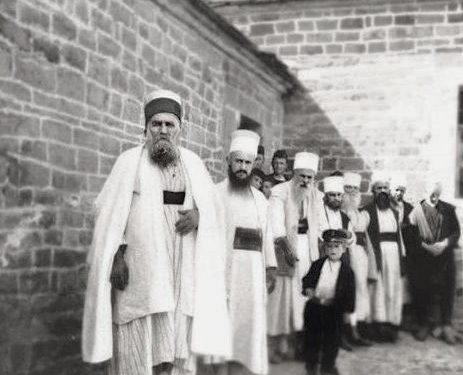
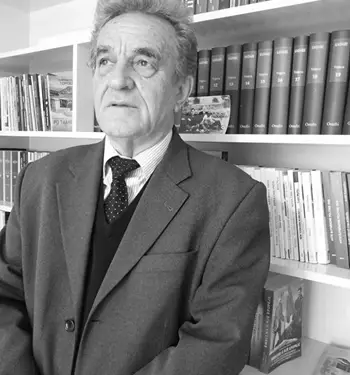
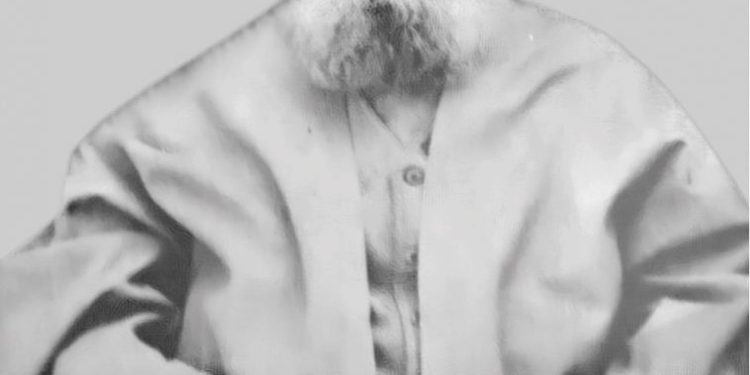
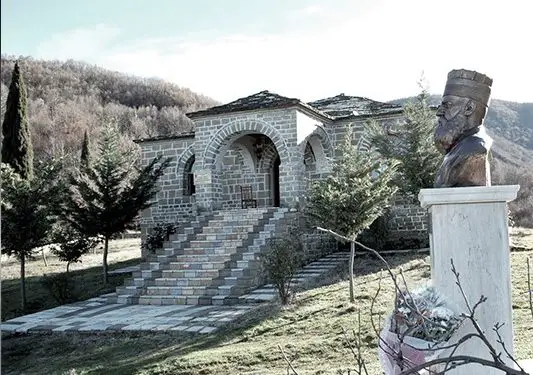
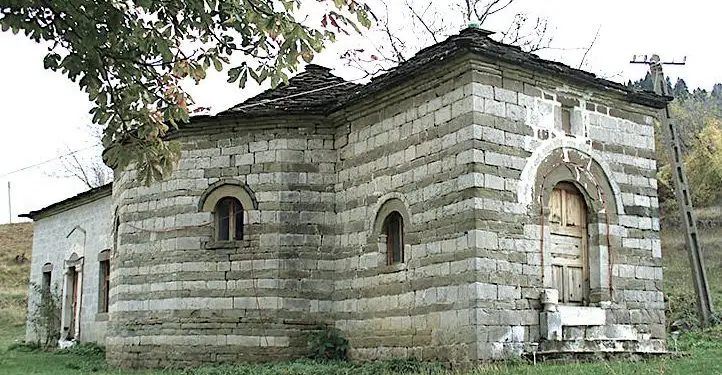
![“When the party secretary told me: ‘Why are you going to the city? Your comrades are harvesting wheat in the [voluntary] action, where the Party and Comrade Enver call them, while you wander about; they are fighting in Vietnam,’ I…”/ Reflections of the writer from Vlora.](https://memorie.al/wp-content/uploads/2025/06/admin-ajax-4-350x250.jpg)


![“The ensemble, led by saxophonist M. Murthi, violinist M. Tare, [with] S. Reka on accordion and piano, [and] saxophonist S. Selmani, were…”/ The unknown history of the “Dajti” orchestra during the communist regime.](https://memorie.al/wp-content/uploads/2026/02/admin-ajax-3-350x250.jpg)
![“In an attempt to rescue one another, 10 workers were poisoned, but besides the brigadier, [another] 6 also died…”/ The secret document of June 11, 1979, is revealed, regarding the deaths of 6 employees at the Metallurgy Plant.](https://memorie.al/wp-content/uploads/2026/02/maxresdefault-350x250.jpg)

